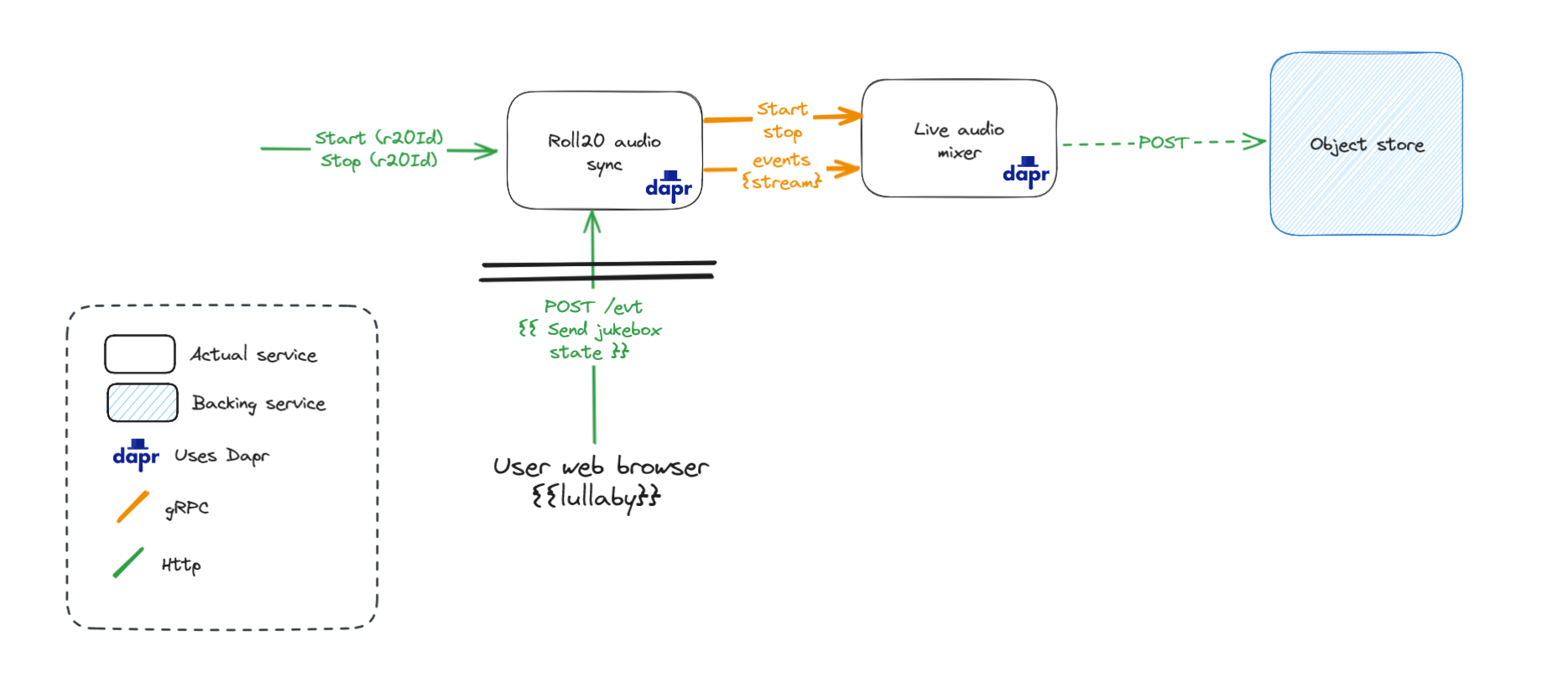Roll20 Audio Recorder
This project is a headless Roll20 audio recorder. Its meant to record the Jukebox audio of a Roll20 game.
The recording is split between multiple services:
- A Javascript script running in the browser of a single user in a Roll20 game, listening for changes in the Jukebox and sending them to the backend
- This project, receiving the Jukebox state and breaking it into multiple audio events
- The live audio mixer, receiving the audio events and mixing them into a single audio stream. Optionally, the audio stream can be piped to an object store.
Usage
You can start and stop the recording using the start and stop endpoints of the jukeboxsyncer service.
# ID must be the ID of the Roll20 game you want to record. You can find it in the URL of the game
# https://app.roll20.net/campaigns/details/1234/my-game
curl -X POST http://localhost:50302/v1/jukeboxsyncer/start -d '{"id": "1234"}'To end the recording, send a POST request to the stop endpoint of the jukeboxsyncer service.
# ID must be the ID of the Roll20 game you want to record
curl -X POST http://localhost:50302/v1/jukeboxsyncer/stop -d '{"id": "1234"}'The recorded audio will be available in the rec folder of the live audio mixer project.
Setting up the project
Locally
Pre-requisites:
To start the project, clone both projects repositories
git clone https://github.com/SoTrxII/live-audio-mixer
git clone https://github.com/SoTrxII/roll20-audio-sync
Then start the project using the start.sh script
cd ./live-audio-mixer
dapr run -f ./deploy/roll20-recorder.yamlThe last step is editing the listener script to replace the <JKBSYNC_URL> with the URL of the evt endpoint of jukeboxsyncer service.
For a local deployment, the URL is http://localhost:50302/v1/jukeboxsyncer/evt.
You can then go into the roll20 game you want to record and copy/paste the script into the browser console.
Kubernetes
Install Dapr on the Kubernetes cluster you want to use.
You can then deploy the app
dapr run -k -f ./deploy/roll20-recorder.yamlAs per locally, edit the listener script to replace the <JKBSYNC_URL> with the URL of the evt endpoint of jukeboxsyncer service.
You can then go into the roll20 game you want to record and copy/paste the script into the browser console.
Deploying the app on Kubernetes this way is not recommended for production. You can however reuse the yaml files located in .dapr/deploy to create your own deployment.
Configuration
Here are the list of available env variables:
| Variable name | Description | Required | Default value |
|---|---|---|---|
APP_PORT |
Port the app is listening to | False | 4096 |
DAPR_GRPC_PORT |
Port to connect to Dapr gRPC server. This variable is set automatically when running the app with dapr run. | False | 50001 |
